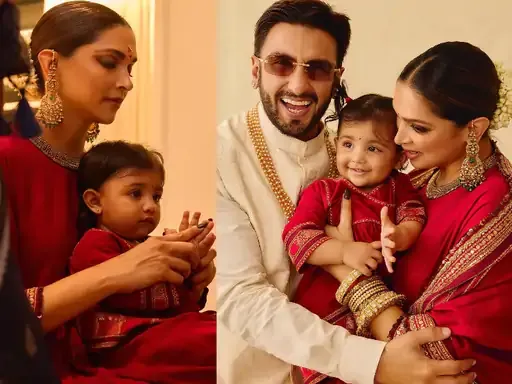How did Savarkar become ‘Veer’ who apologized to the British?

Savarkar wrote in his apology to the British, ‘If the government, in its infinite kindness and mercy, releases me, I assure that I will be the most staunch supporter of constitutionalist development and will be loyal to the British government.’
…………………. Today, from the speeches of BJP leaders to the posters of the party, Savarkar finds an important place. At a time when a party running an agenda of radical Hindu nationalism is in power, it seems necessary to reflect on Hindutva and its progenitor VD Savarkar.
What were Savarkar’s views? What was his contribution in the freedom struggle? What was the role of Savarkar in the freedom movement, due to which he was awarded the title of Veer Savarkar, this question is very important.
In an interview given to two journalists of Reuters news agency in July 2013, Narendra Modi, while being the Chief Minister before becoming the Prime Minister, described himself as a ‘Hindu nationalist’.
There is an unbreakable relationship between nationalism and national freedom movement in India. Nationalism was the spirit of India’s independence movement, which was at the core of the entire movement. During this time the idea of Hindu nationalism or Hindu nationalism was coined.
Savarkar is the originator of that Hindutva which proved to be a divisive force between Hindus and Muslims. Like the two-nation theory of the Muslim League, his Hindutva also helped the British in their policy of ‘divide and rule’.
Political scientist and professor Shamsul Islam writes, the term “Hindu nationalist” originated in a historical context during India’s freedom struggle against British imperialism. This freedom struggle was mainly fought under the leadership of Congress for an independent democratic secular India. The ‘Muslim Nationalists’ under the banner of Muslim League and the ‘Hindu Nationalists’ under the banner of ‘Hindu Mahasabha’ and ‘RSS’ opposed this freedom struggle by saying that Hindus and Muslims are two separate nations. These Hindu and Muslim nationalists have joined hands with their colonial masters to thwart the freedom struggle so that they can achieve the religious states of their choice, ‘Hindusthan’ or ‘Hindu Rashtra’ and Pakistan or Islamic nation.’
After this interview of Narendra Modi, Professor Shamsul Islam wrote an open letter to Narendra Modi, in which he writes, ‘People are well aware of the role of Muslim League and its politics in dividing India, but I think It is important to refresh your memory about the dirty and devious role played by ‘Hindu nationalists’ after independence and during the freedom struggle.’
According to that letter, ‘Hindu nationalists’ believe in the two-nation theory just like the Muslim League. Both VD Savarkar, the father of Hindutva, and the RSS have a clearly understood belief in the two-nation theory that Hindus and Muslims are two separate nations. The Muslim League under the leadership of Muhammad Ali Jinnah passed a resolution demanding a separate homeland for the Muslims of India in the form of Pakistan in 1940, but Savarkar did so much earlier, in 1937 when he attended the 19th session of the Hindu Mahasabha in Ahmedabad. I was delivering the presidential speech when he announced that Hindus and Muslims are two separate nations.
Shamsul Islam quotes Savarkar’s thoughts in the above letter from his entire vandmay, ‘ At present two rival nations are living side by side in India. Many immature politicians commit the grievous mistake of supposing that India has already been molded into a harmonious nation or that it will become so if only we wish it. Such kind of our well intentioned but crude thinking friends just want to turn dreams into reality. That’s why they get impatient with communal conflicts and blame communal organizations for this. But the concrete fact is that the so-called communal question is nothing but the result of cultural, religious and national rivalry between Hindus and Muslims over hundreds of years that have come down to us. We should face these unpleasant facts with courage. Today it cannot be believed at all that India is a united nation, on the contrary, there are mainly two nations in India, Hindus and Muslims.
Savarkar is the original ideologue of Rashtriya Swayamsevak Sangh who considers Hindu-Muslim as two separate nations. Since then, even in the subsequent years, the Sangh has stuck to its vision of a Hindu nation and the idea of Hindu nationalism.
On the contrary, the Sangh also curses Congress, Mahatma Gandhi, Nehru for the partition of India-Pakistan. At present, for Hindu nationalists, the biggest ‘traitors’ are those people who are against communalism, those who believe in secular thought.
Also read: Bhagat Singh and Savarkar: Two petitions that differentiate between Hind and Hindutva
As the Prime Minister has said that he is a ‘Hindu Nationalist’, if being a ‘Hindu Nationalist’ is a matter of pride, then pride creates a problem. Similarly there will be Muslim nationalists, Sikh nationalists, Christian nationalists.
It is obvious that so many nationalists will stand as a threat against Indian nationalism in many groups. What is there to be proud of in this Hindu nationalism which advocates taking a nation as diverse as India on the same lines.
During the freedom struggle, instead of supporting the Indian fighters, the Hindu nationalists sided with the British and got an assurance from the British not to act on them. Netaji Subhash Chandra Bose tried to liberate India with the help of Germany and Japan.
During this, ‘Hindu nationalists’ sided with the British rulers instead of helping Netaji Subhash Chandra Bose. Savarkar helped recruit soldiers in India for the British Empire. Later on, Savarkar pushed forward the agenda of Hindutva which helped in creating differences between Hindus and Muslims.
Quoting Veer Savarkar Samagra Vandmay, Shamsul Islam writes, ‘Instead of helping Netaji, the Hindu nationalists strengthened the hands of the British rulers in defeating Netaji’s liberation struggle. The Hindu Mahasabha organized recruitment camps for British forces under the leadership of ‘Veer’ Savarkar.
Hindutvavadis had completely surrendered before the British rulers, which becomes even more clear from the following statement of ‘Veer’ Savarkar-
“The Hindu society should unhesitatingly associate in a spirit of sympathetic cooperation with the war efforts of the Government of India so long as it is in the interest of Hindu interests so far as the security of India is concerned. Hindus should join the army, navy and air force in large numbers and enter all arms, ammunition and munitions factories etc…
It is noteworthy that because of Japan’s entry into the war, we have come under the direct attack of Britain’s enemies. Therefore, whether we like it or not, we have to save our families and homes from the ravages of war and this can be done only by strengthening the official war efforts for India’s security. Therefore, the Hindu Mahasabhas, particularly in the provinces of Bengal and Assam, should, as effectively as possible, induce Hindus to join the armies without delay.’
Former Supreme Court judge Justice Markandey Katju writes in one of his articles, ‘Many people believe that Savarkar was a great freedom fighter. But what is the truth?
The truth is that many nationalists were arrested during the British Raj. In the jail, the British officials used to tempt him to either join them or spend the rest of his life in jail. Then many people got ready to become allies of the British rule. Savarkar is also involved in this.
Justice Katju says, ‘Actually, Savarkar remained a nationalist only till 1910. This was the time when he was arrested and sentenced to life imprisonment. After spending about ten years in jail, the British officials offered him to become an ally, which Savarkar accepted. After coming out of jail, Savarkar started promoting Hindu communalism and became a British agent. He used to work to further the British policy of ‘divide and rule’.
Justice Katju writes, ‘Savarkar was the president of the Hindu Mahasabha during the Second World War. He then promoted the slogan, ‘Hinduize politics and militarize Hindus’. Savarkar also supported the demand of British rule in India to give military training to Hindus for war. After this, when the Congress started the Quit India Movement in 1942, Savarkar criticized it. He asked the Hindus not to disobey the British Government. At the same time, he asked the Hindus to join the army and learn the art of war. Does Savarkar deserve respect and should be called a freedom fighter? Why talk about Savarkar as ‘Veer’? He had become a British agent after 1910.
Shamsul Islam, discussing the Hindutva of Veer Savarkar, writes, ‘In fact the RSS follows the ideology set by ‘Veer’ Savarkar. It is no secret that ‘Veer’ Savarkar remained a big proponent of casteism and worship of Manusmriti throughout his life. According to this inspiration of ‘Hindu nationalism’- ‘Manusmriti is such a scripture which is the most worshipable after the Vedas for our Hindu nation and which has become the basis of our culture, customs, thoughts and conduct since ancient times. For centuries this book has codified the spiritual and divine drive of our nation. Even today, the rules that crores of Hindus follow in their life and conduct are based on Manusmriti. Today Manusmriti is Hindu law.
Nathuram Godse shot and killed Mahatma Gandhi in 1948. There were eight accused in this murder that shook the entire continent, one of whom was named VD Savarkar. However, this allegation against him could not be proved and he was acquitted.
He was involved in revolutionary activities till 1910-11. He was caught and in 1911 he was put in the infamous Andaman jail. He was sentenced to 50 years, but within a few months of the beginning of the sentence, he petitioned the British government to release him.
After this he filed many petitions. In his petition, he promised the British that ‘if I was released, I would withdraw myself from India’s freedom struggle and pledge my allegiance to the British Government.’ He kept this promise after his release from the Andaman prison. Joined, didn’t get caught.
VD Savarkar filed a petition in 1913 in which he mentioned all the treatment being done to him and at the end wrote, ‘Huzoor, I want to remind you again that you have been kind to my petition sent in 1911 for pardon Reconsider and recommend to forward it to the Government of India. The latest developments in Indian politics and the government’s policies of taking everyone along have once again opened the constitutionalist path. Now no one who wants the good of India and humanity, will walk blindly on those thorny paths, as the atmosphere of hopelessness and excitement of 1906-07 led us astray from the path of peace and progress.
In his petition, Savarkar writes, ‘If the government in its infinite kindness and mercy releases me, I assure you that I will be the most staunch supporter of constitutional development and will be loyal to the British government, which is the first condition of development. Is. As long as we are in jail, real joy and happiness cannot come in the homes of hundreds and thousands of loyal subjects of His Majesty, because there is no greater relation than blood relation. If we are released, people will happily and gratefully raise slogans in favor of a government that knows more to forgive and reform than to punish and retaliate.
In the next part of the petition, he promises to bring more Indians to the side of the government, writing, ‘Moreover, my conversion to the constitutionalist path will bring all those misguided youth living in India and outside India to the right path. , who once looked to me as their guide. I am ready to serve in whatever form the Government of India wants, because as this conversion of mine is the call of conscience, so will be my future behaviour. The gain you get by keeping me in jail is nothing compared to the gain you get by releasing me from jail. One who is strong can be kind and where else can a promising son return than through the doors of government. Hope Huzoor will kindly consider my requests.
Indulging in such activities and asking for mercy, how can Savarkar, who unlike Subhash Chandra Bose, helped recruit Indians for the British army, be called a hero?
Savarkar’s contribution is that he gave the ideology of Hindutva in India which advocates the supremacy of one religion as opposed to democracy.
Krishna Kant







